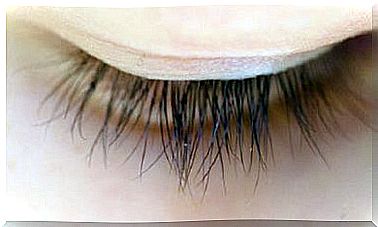Differences Between Eating Dehydrated Fruit And Fresh Fruit
There are two types of fruit that can be purchased in the supermarket: fresh fruit and dehydrated fruit. They present a series of similarities to each other, but also differences. The first one is its water content, since the dehydrated mode does not have a large amount of liquid.
Fruit is a fundamental food for health. A regular consumption of it is related to a lower risk of developing diseases in the medium and long term. This is due to the presence of micronutrients and antioxidants in its composition, capable of exerting a protective effect on the human body.
Differences of eating fresh fruit and dehydrated fruit
One of the main differences between fresh fruit and dehydrated fruit is the taste, which is much sweeter in the second case, due to the concentration of sugars. The fact of removing the water from the food causes the carbohydrates to be more present per gram of food, which generates a change in its palatability that is noticeable. In addition, there are other differences that we are going to comment on.
Calories
It is clear that the energy provided by 100 grams of dehydrated fruit is much higher than that provided by 100 grams of fresh fruit. This is due to the absence of water in its composition, which increases the nutrient content per grams of the food.
It should be noted that water is caloric, which allows to generate a feeling of satiety without providing energy, as stated in a study published in the journal Clinical Nutrition Research . This is a key piece of information in overweight and obesity plans.
For this reason, if your goal is to follow a diet that helps you lose weight, dehydrated fruit will not be the best option. It will be much more effective if you consume fresh fruit, since in this way you will feel satiated and the energy intake will be less.
Also do not forget that the moment in which you eat the fruit can be decisive. According to the principles of chrononutrition, the body has a better assimilation of carbohydrates from noon until nightfall. This is evidenced by a publication made in the Nutrients magazine .

Nutrients
In reality, the amount of macronutrients in both foods remains intact ; only their concentration varies. Changes could be recorded in the content of vitamins and antioxidants with a water-soluble character. The fact that these substances dissolve in water causes that, when the liquid is removed, a good part of them are lost.
Keep in mind that antioxidants are essential elements to guarantee an adequate state of health. This is evidenced by research published in the journal Advances in Nutrition . For this reason, the consumption of fresh fruit is advantageous compared to the intake of dehydrated fruit. However, those phytonutrients that are responsible for giving pigmentation to the food tend to stay in it.
Conservation
In this aspect, dehydrated fruit wins. Removing liquid from food is one of the established methods that exist to improve their preservation.
This reduces, among other things, the microbiological risk. A clear example of them are nuts, with a poor water content and a great ability to remain intact over the weeks.
Recommended amount of fresh fruit and dried fruit
It is clear that both fresh and dehydrated fruit can be included in the diet when the objective is to improve its quality. However, it is always advisable to prioritize the consumption of fresh fruit.
The latter, compared to the dehydrated one, is capable of generating greater satiety through a lower contribution of sugars. In addition, it contains a more significant amount of antioxidants, capable of preventing the development of pathologies.
You can use the dehydrated fruit to accompany a recipe or to mix with yogurts. However, try not to overdo it. A couple of dessert spoons will be more than enough to add flavor without getting your carbohydrate intake out of control.

Eat fruit whenever you can
Above all, be clear that the presence of fruit in the diet is essential. You should include at least one or two pieces on a daily basis to meet the micronutrient and antioxidant demands. Also don’t forget about vegetables, as they are also essential foods.
When using dried fruit, think of it as a treat. It is fine to complement some preparation or to provide a touch of extra sweetness, but it should not become the protagonist in any case.
Another application framework for this type of food is the sports context. The consumption of dehydrated fruit during a competition or training can be evaluated, since in this way simple sugars are provided quickly, thus generating a reduction in fatigue. However, we are talking about a very specific case, not extendable to the general population.









